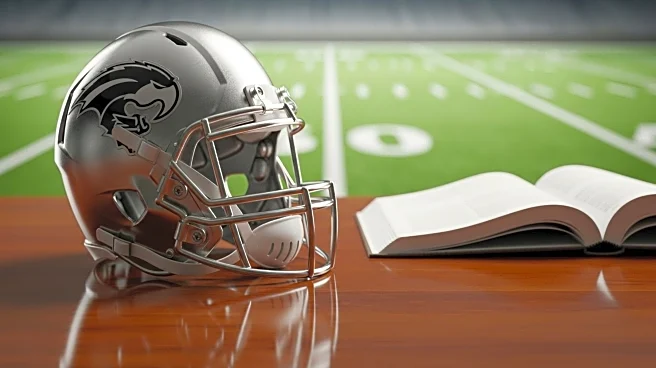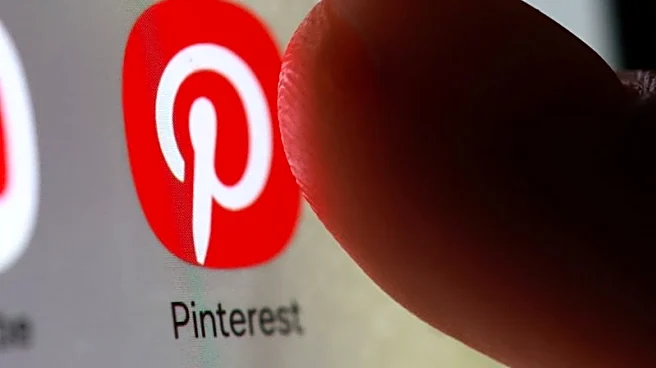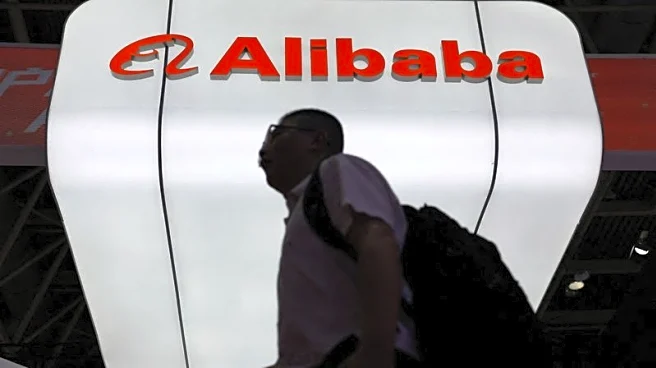What's Happening?
Georgia coach Kirby Smart has expressed his support for Sam Pittman following his recent firing from Arkansas. Pittman, who served as Smart's first offensive line coach at Georgia, was dismissed after a six-year tenure as Arkansas's head coach. Despite the setback, Pittman remains appreciative of his career achievements and the support from colleagues like Smart. The firing comes after Arkansas's performance under Pittman, which included a record of 32-34. Smart has reached out to Pittman via text, acknowledging the challenges of the coaching profession and offering his support.
Why It's Important?
Sam Pittman's firing from Arkansas underscores the volatile nature of coaching positions in college football, where performance pressures can lead to sudden changes in leadership. Pittman's departure may impact Arkansas's football program, requiring adjustments in strategy and recruitment. For Georgia, the situation highlights the importance of maintaining strong relationships within the coaching community, as demonstrated by Smart's outreach. The firing also reflects broader trends in college sports, where coaches face increasing scrutiny and expectations for immediate success.
What's Next?
Following Pittman's firing, Arkansas will need to identify a new head coach to lead the program. This decision will be crucial for the team's future performance and recruitment efforts. Pittman, having received a buyout, may explore new opportunities within college football or related fields. For Georgia, the focus remains on upcoming games, including a match against Kentucky, where the offensive line will play a critical role. Smart's continued support for Pittman may influence future coaching dynamics and collaborations within the SEC.
Beyond the Headlines
The firing of Sam Pittman highlights the pressures faced by college football coaches, where job security is often tied to team performance. This environment can lead to ethical dilemmas, as universities prioritize winning over stability and long-term development. The situation also raises questions about the impact of financial incentives, such as buyouts, on coaching decisions and career trajectories. As college sports evolve, coaches must navigate complex dynamics, including player empowerment and NIL deals, which can affect traditional coaching methods.











